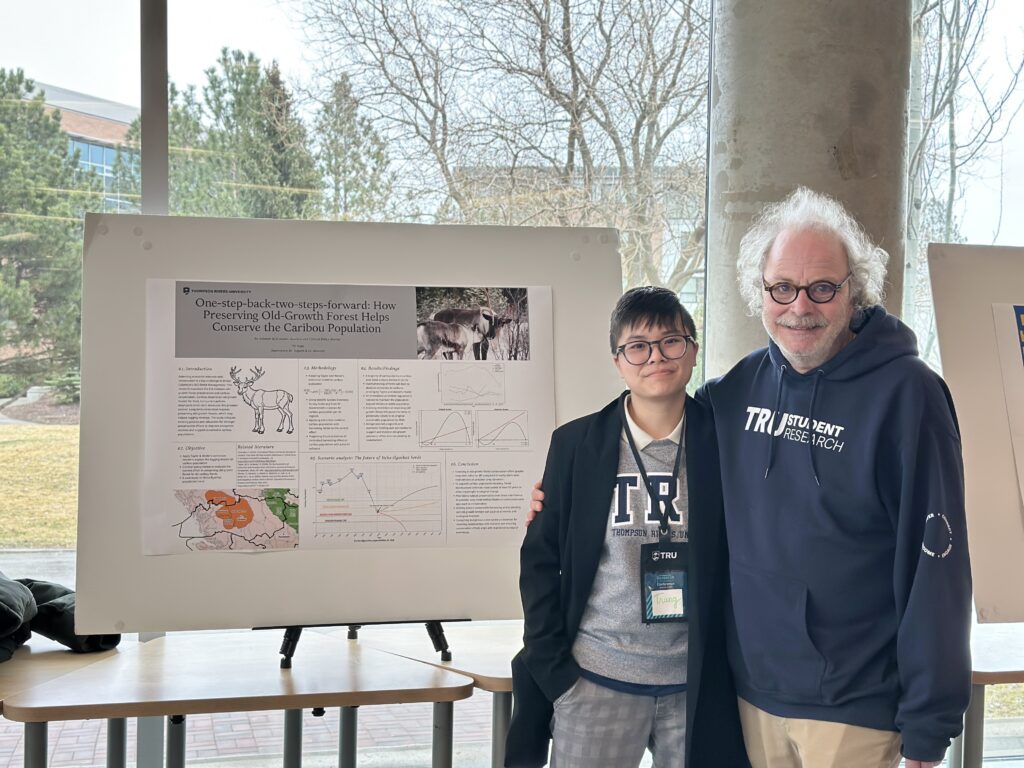INTRODUCTION.
Hi! My name is Thi Minh Trang Phan (preferred name: Trang Phan). I’m an undergraduate student pursuing a Bachelor of Business Administration (BBA) with a major in Economics. My passion for Economics sparked when I took Land Use Economics and Forestry Economics. After completing my third co-op term with the Adams Lake Indian Band – Natural Resource Department, I became deeply interested in Environmental Economics and started researching on contemporary environmental issues.
Through the Undergraduate Research Experience Award Program (UREAP), I’m conducting an economic analysis on British Columbia’s caribou conservation program supervised by Dr. Tisgaris and Dr. Strantza. This project allows me to apply descriptive statistical tools and policy review analysis to provide recommendations for improving current conservation strategies.
Besides that, I’m also part of the Capstone course, supervised by Dr. Tisgaris, where we contribute research papers to a soon-to-be-published book on topics related to the Kamloops community. My paper explores how old-growth forest preservation policies can support caribou habitat recovery.
Additionally, in my Econometrics course, supervised by Dr. Mahbobi, I’m analyzing data using EViews 13, ForecastX, and Minitab to assess BC’s caribou recovery efforts. This project builds on my Forecasting in Business class and enhances my data analysis skills.
Beyond my coursework, I assist Professor Tucker with research on applying the Two-Eyed Seeing approach in higher education, broadening my perspective beyond Economics.
My research experience at TRU during the 4th year of BBA has brought me major knowledge and curiosity to the local issues such as BC old-growth forest or caribou conservation. I have effectively learned to apply and evaluate the problems using logical and scientific research skills. Below is the showcase of my research knowledge.
THE STANDARDS.
The standards below are the evidence I extract from the research courses work. Each skill I build throughout the research process will be illustrated with evidence and further explain how the standards below are met.
